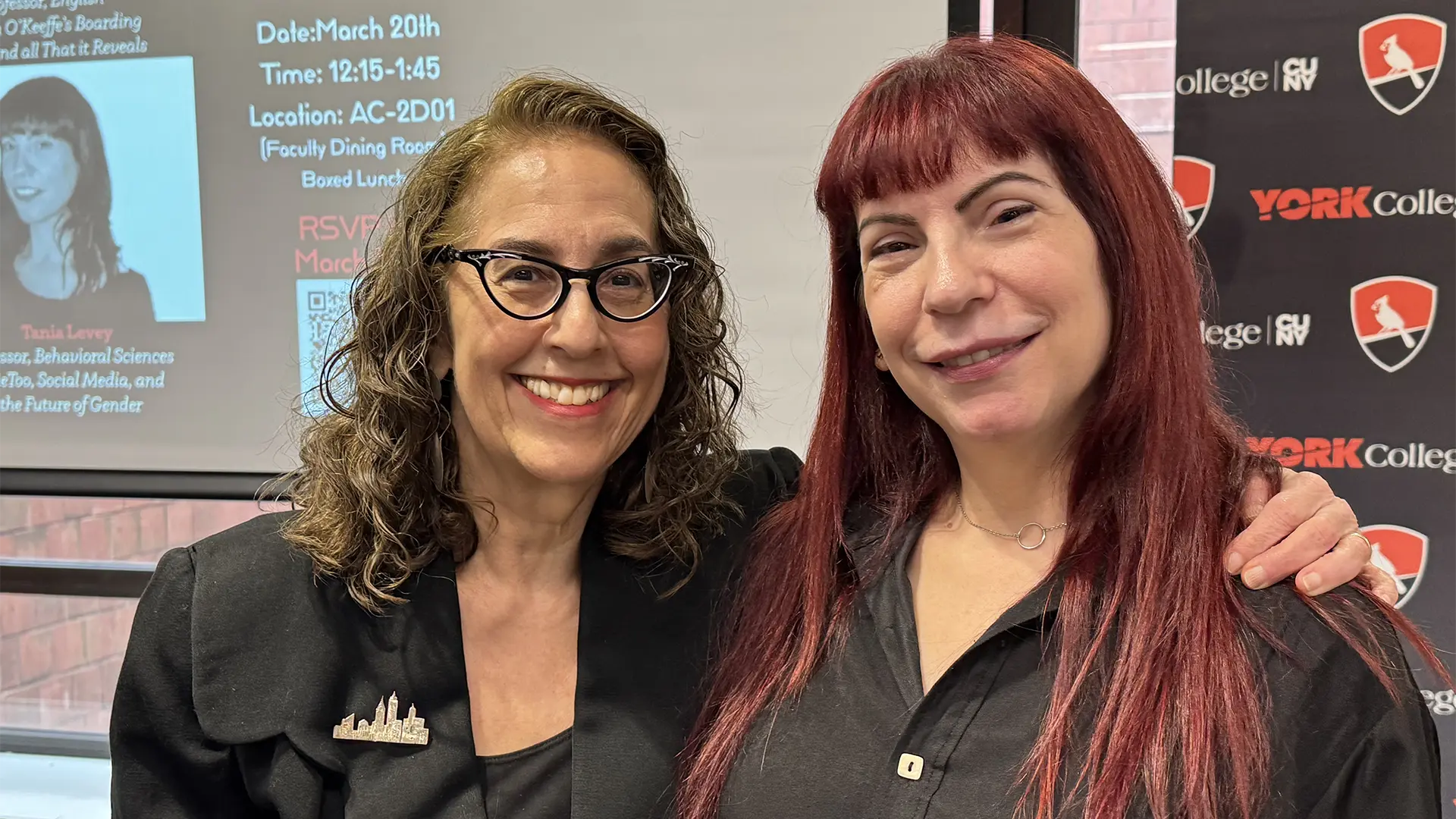Faculty Forum: Interdisciplinary Talks on Women's Lives
York professors explored women's experiences, from artist Georgia O'Keeffe's early struggles to the #MeToo movement's impact and current challenges.
On March 20, Professor Linda M. Grasso from the English department and Professor Tania Levey from Behavioral Sciences, hosted an enlightening forum on their interdisciplinary scholarship on women’s lives, past and present. This forum is part of an Enrichment series in which York faculty share their research and provide an opportunity for cross-disciplinary exchange in the college community.
Through art, news and magazine articles, Grasso presented key women in history, such as Georgia O’Keeffe, an artist and painter at the forefront of the feminist movement during the 1940s. Recognized as one of the world’s most outstanding painters, she is often honored for her art. As an active member of the National Woman’s Party, O’Keeffe was a strong supporter of the Equal Rights Amendment. Her contributions from the past continue to inspire women today.
In her richly illustrated presentation, Grasso focused on O’Keeffe’s early years as a student at the Art Students League of New York. The women’s boarding house she lived in on the Upper East Side of Manhattan, the friendships she made with other women artists at the boarding house and the League, and the difficult economic conditions she and other women faced as they became professional artists. Encountering a gendered and racially segregated city, O’Keeffe and her peers were subject to gendered expectations about codes of conduct, sexual harassment from fellow male students, and restrictions on the kinds of careers to which they could aspire. Nevertheless, Grasso concluded, O’Keeffe and other young women explored the city on foot, train, and cable car; delighted in each other’s company; and helped each become professionals.
Transitioning to the present, Professor Levey drew from empirical research and philosophical models of social change to contemplate the future of gender and sexual relations after the #MeToo Movement and in today’s political climate. Coined by Tarana Burke on MySpace, the phrase “me too” went viral after actor Alyssa Milano used the phrase in a 2017 Twitter post, specifically in response to multiple reports of sexual harassment and assault by Harvey Weinstein: “If you’ve been sexually harassed or assaulted write ‘me too’ as a reply to this tweet.” Along with the tweet, Milano posted an image that read, “Me too. Suggested by a friend: If all the women who have been sexually harassed or assaulted wrote ‘Me too.’ as a status, we might give people a sense of the magnitude of the problem.” Millions of women around the world responded, indeed revealing the scale of the issue.
Although the #MeToo Movement led to the firing, and in some cases, arrest, of sexual harassers across the arts, media, and government sectors, we are now seeing many gains reversed, particularly in the political sector. Levey proposed, like the Rev. Dr. Martin Luther King Jr., that the moral arc of the universe bends toward justice, but not in a straight line. Drawing from dialectic, loop, and spirograph theories of history, she notes that progress can reverse, and we are certainly in a dramatic backward spiral aimed at trampling almost every human right. Her talk sparked lively discussion about how grassroot efforts can help revive gender and other social justice initiatives across the country.
Revised: July 3, 2025
